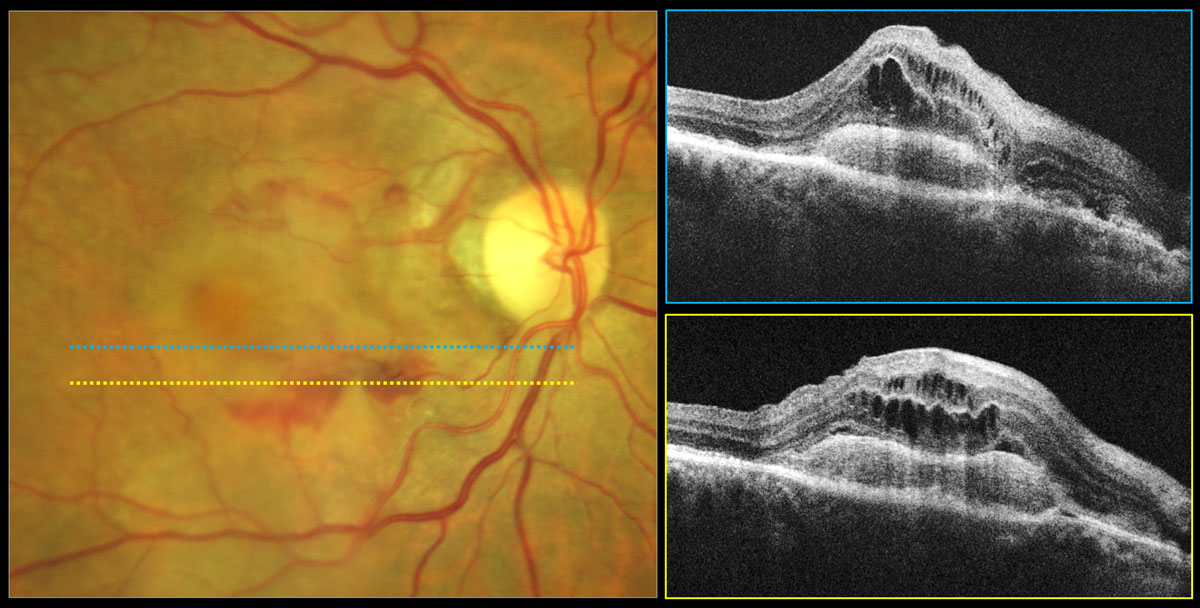 |
|
Changes in retinal blood flow may be able to predict AMD progression, study finds. Photo: Carolyn Majcher, OD. Click image to enlarge. |
Blood flow in the retina has long been thought to contribute to age-related macular degeneration (AMD) pathogenesis. Researchers recently examined retinal vessel parameters of eyes enrolled in the Age-Related Eye Disease Study (AREDS) to determine whether retinal vascular caliber affects AMD severity or the risk for progression. They found that changes in circulation may contribute to the disease.
The retrospective secondary analysis of AREDS included 1,172 fundus photographs and clinical data. The researchers used the Parr-Hubbard-Knudston formula to measure central retinal artery equivalent (CRAE), central retinal vein equivalent (CRVE) and arteriole-to-venule ratio (AVR). Further analyses were conducted using the nine-step AMD severity score.
The researchers reported the following findings:
Only CRAE and CRVE were higher in men, smokers and eyes with a cilioretinal artery.
Older patients, smokers, eyes without a cilioretinal artery and lower ARV on multivariate regression had greater AMD severity, but this wasn’t influenced by CRAE or CRVE.
Older age and absence of a cilioretinal artery were associated with choroidal neovascularization.
Central geographic atrophy was associated with narrower CRAE and possibly AVR.
The researchers noted in their study that at five years, none of the retinal vessel parameters were predictive of AMD severity score, new-onset choroidal neovascularization or central geographic atrophy.
“Our study found that a lower AVR may be associated with worse AMD severity and that arteriolar narrowing may be seen in eyes with central geographic atrophy after adjusting for age, sex, smoking status and the presence of a cilioretinal artery,” they wrote in their paper. “Thus, changes in retinal circulation may be associated with AMD pathophysiology, and future studies may provide greater insight into its role in this condition.”
Toulouie S, Chang S, Pan J, et al. Relationship of retinal vessel caliber with age-related macular degeneration. J Ophthalmol. July 31, 2022. [Epub ahead of print]. |


